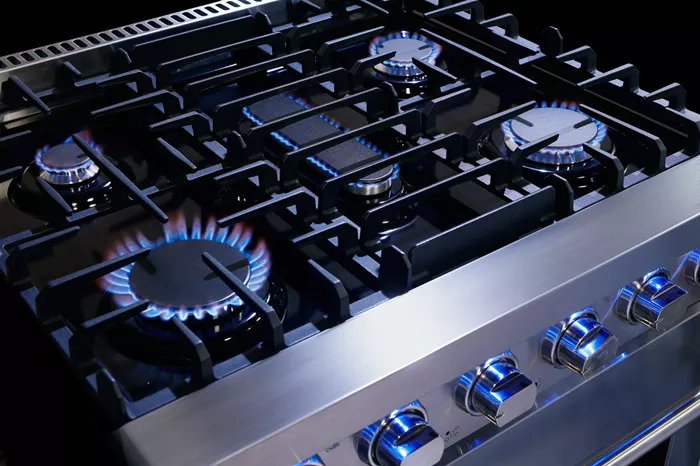When choosing between propane and natural gas for heating, cooking, or other energy needs, many factors come into play. Among these, health implications are crucial but often overlooked. This article delves into the health impacts of both propane and natural gas, offering a comprehensive comparison to help you make an informed decision.
What Is Propane?
Definition and Uses
Propane is a type of liquefied petroleum gas (LPG) that is used widely for heating, cooking, and powering various appliances. It is a byproduct of natural gas processing and crude oil refining. Propane is stored in liquid form under pressure and is commonly used in areas not connected to natural gas pipelines.
Characteristics
Chemical Composition: Propane is a hydrocarbon with the chemical formula C₃H₈.
Storage: It is stored in pressurized tanks or cylinders.
Energy Content: Propane has a high energy content, which makes it efficient for heating and cooking.
What Is Natural Gas?
Definition and Uses
Natural gas is a fossil fuel composed primarily of methane (CH₄). It is used extensively for heating, cooking, and electricity generation. Natural gas is delivered through pipelines and is a primary energy source for many households and industries.
Characteristics
Chemical Composition: Natural gas is mainly methane, with traces of other hydrocarbons.
Delivery: It is supplied through an extensive pipeline network.
Energy Content: Natural gas has a slightly lower energy content compared to propane but is still highly efficient.
Health Impacts of Propane
Combustion Emissions
Propane burns cleaner than many other fossil fuels. Its combustion produces fewer pollutants, which can be beneficial for indoor air quality. Key emissions from propane combustion include:
Carbon Dioxide (CO₂): A greenhouse gas contributing to climate change.
Water Vapor: Generally harmless but can contribute to moisture issues indoors.
Nitrogen Oxides (NOx): Can affect respiratory health, especially in poorly ventilated spaces.
Indoor Air Quality
While propane produces fewer pollutants than some fuels, improper ventilation can still lead to indoor air quality issues. Incomplete combustion can release carbon monoxide (CO), a dangerous gas that can cause health problems if not properly managed.
Health Risks
Carbon Monoxide Poisoning: Propane appliances must be well-maintained and properly vented to prevent CO buildup.
Respiratory Issues: Nitrogen oxides from propane can irritate respiratory systems, particularly in sensitive individuals.
See also: Why Does Natural Gas Have an Odor?
Health Impacts of Natural Gas
Combustion Emissions
Natural gas is often touted for its clean-burning properties. It emits lower levels of carbon dioxide and fewer pollutants compared to other fossil fuels. Key emissions from natural gas combustion include:
Carbon Dioxide (CO₂): Though less than coal or oil, still a greenhouse gas.
Methane (CH₄): Natural gas itself is a potent greenhouse gas if it leaks.
Nitrogen Oxides (NOx): Similar to propane, can impact respiratory health.
Indoor Air Quality
Natural gas can affect indoor air quality, particularly through methane leaks. Methane is not harmful in small quantities, but leaks can lead to higher concentrations, which may pose health risks.
Health Risks
Methane Exposure: Although less toxic, high levels of methane can displace oxygen and affect breathing.
Carbon Monoxide Poisoning: Like propane, natural gas appliances can produce CO if not properly ventilated.
Respiratory Issues: Nitrogen oxides can cause respiratory problems, especially in poorly ventilated spaces.
Comparison of Health Risks
Air Quality and Respiratory Health
Both propane and natural gas emit nitrogen oxides, which can irritate the respiratory system. However, natural gas may pose a higher risk due to potential methane leaks. Propane, when properly used and ventilated, tends to produce fewer pollutants, but incomplete combustion can be problematic.
Carbon Monoxide Risks
Both fuels have the potential to produce carbon monoxide if appliances are not well-maintained or properly ventilated. Regular maintenance and proper installation are essential to minimize CO risks with both propane and natural gas.
Methane and Propane Leaks
Methane leaks from natural gas systems can displace oxygen, leading to potential health risks. Propane leaks are less common but can also pose risks if not managed properly. Regular inspection and maintenance of fuel systems can mitigate these risks.
Safety Measures and Best Practices
Proper Ventilation
Ensuring that appliances are properly ventilated is crucial for both propane and natural gas. Good ventilation helps prevent the buildup of harmful gases and maintains indoor air quality.
Regular Maintenance
Regular maintenance of appliances and fuel systems is essential for safety. This includes checking for leaks, ensuring proper combustion, and servicing appliances to prevent carbon monoxide buildup.
Carbon Monoxide Detectors
Installing carbon monoxide detectors in your home is a critical safety measure. These devices can alert you to dangerous levels of CO, allowing you to address issues before they become serious health hazards.
Conclusion
When comparing propane and natural gas from a health perspective, both fuels have their advantages and risks. Propane generally produces fewer pollutants and has fewer issues with methane leaks, but proper ventilation and maintenance are essential to avoid carbon monoxide risks. Natural gas is clean-burning but can present health risks due to methane leaks and nitrogen oxides.
Ultimately, the choice between propane and natural gas should consider not only health impacts but also factors such as availability, cost, and environmental considerations. By understanding the health implications of each fuel and implementing safety measures, you can make a more informed decision for your home and family.
Related topic:
Why Is Propane Better Than Natural Gas?

